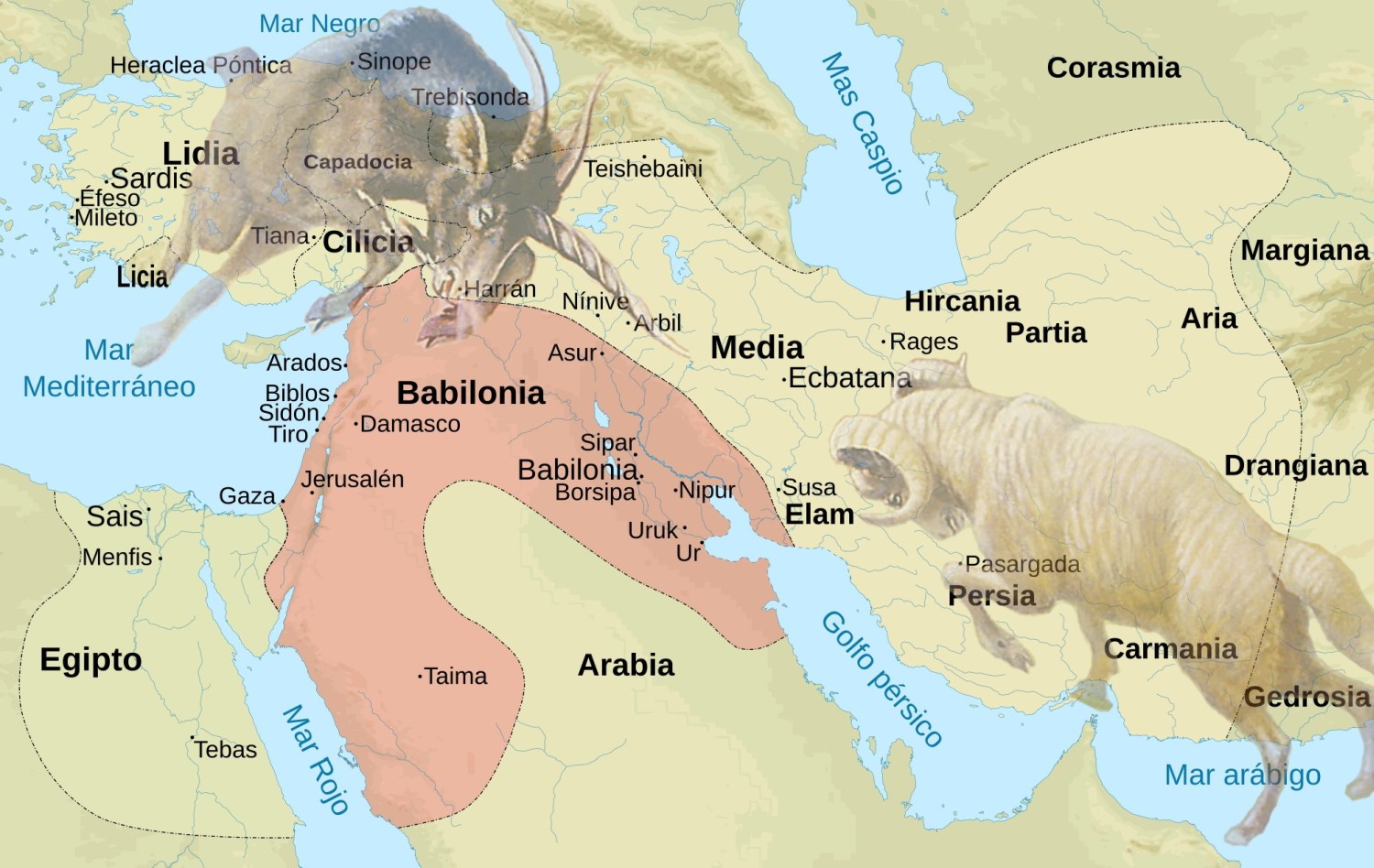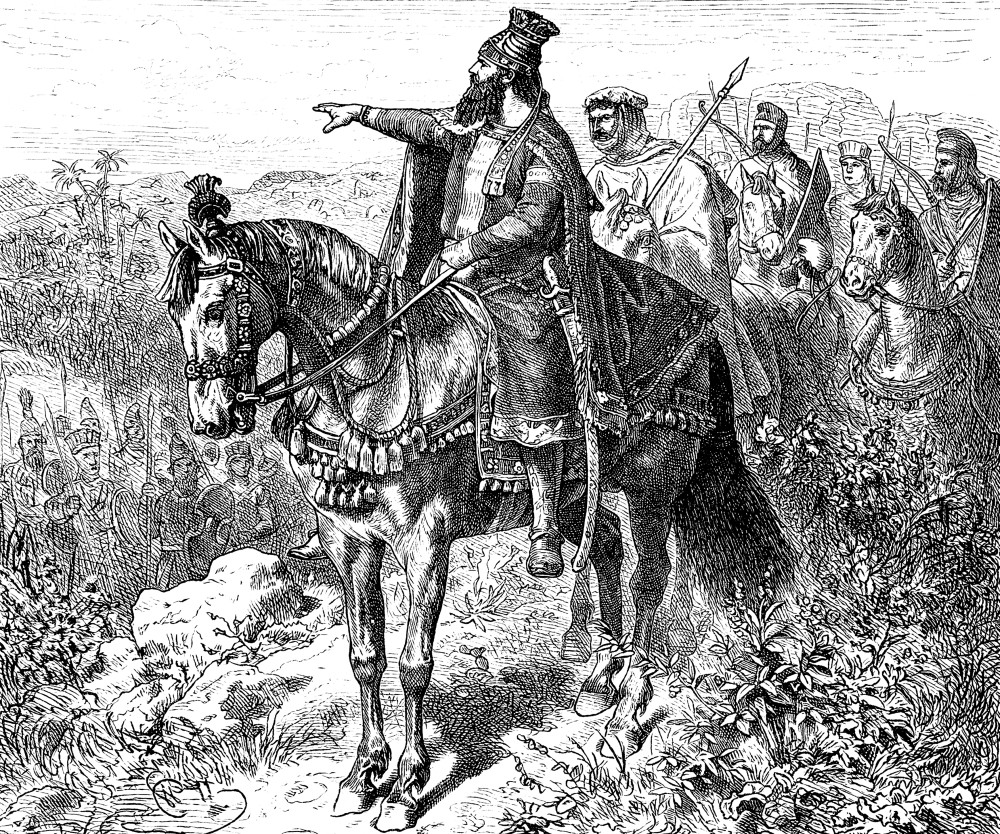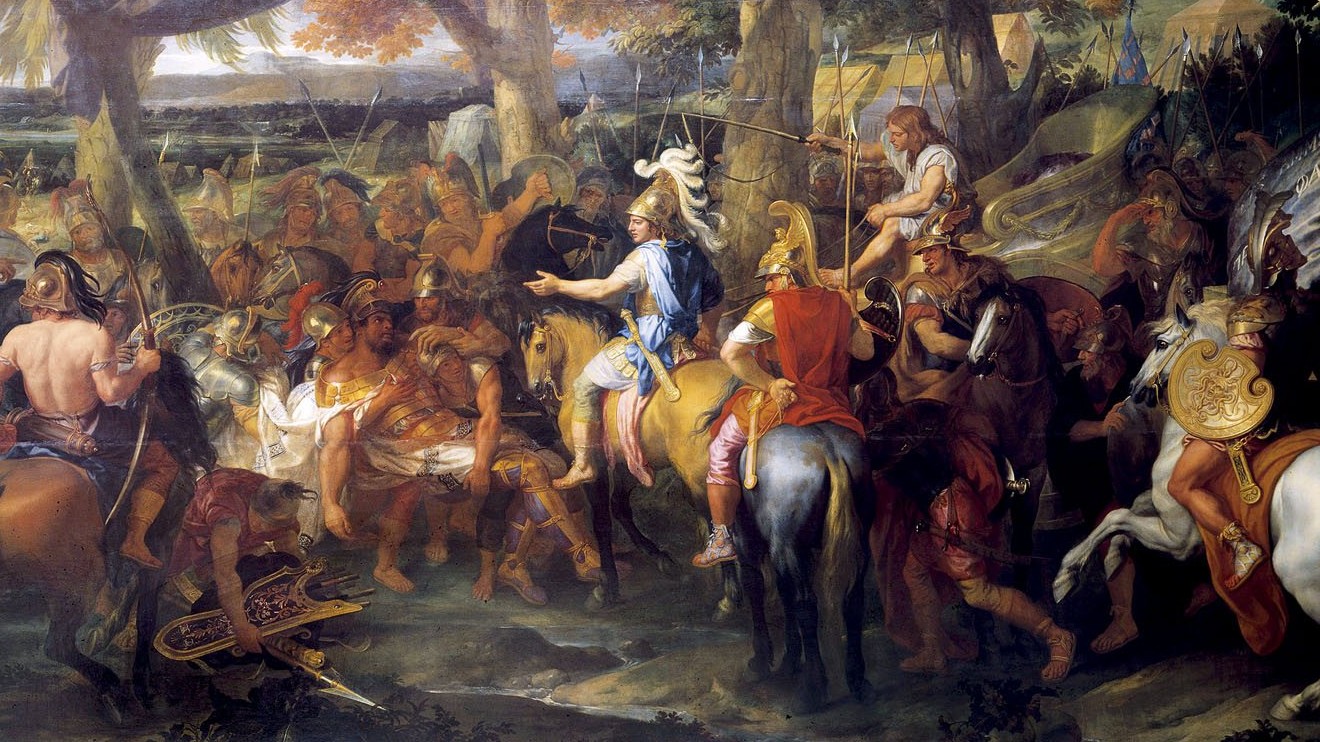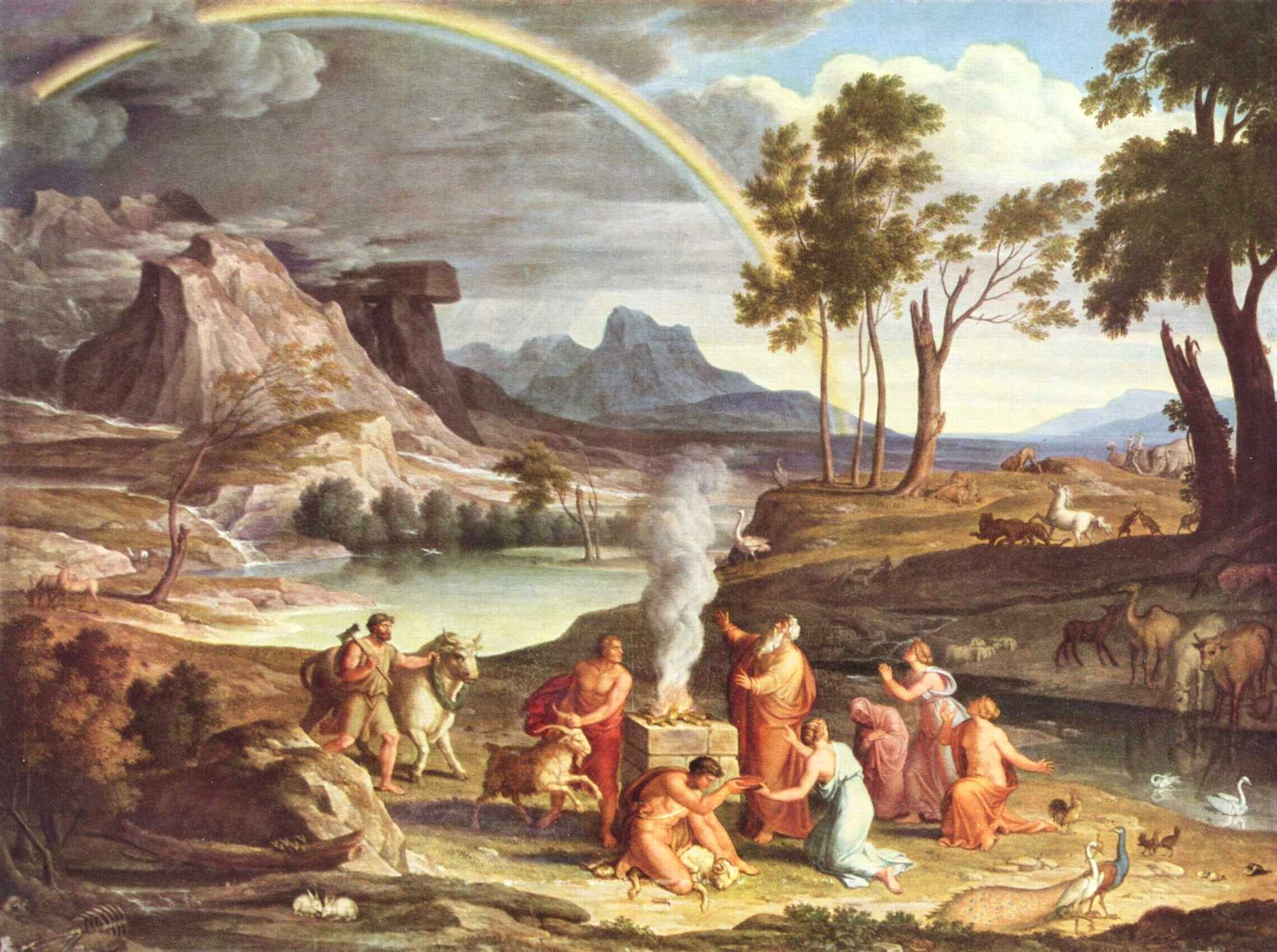The Ram and the Goat
Daniel 8
Daniel 8:1-2 (TS2009)
In the third year of the reign of Belshatstsar the sovereign, a vision appeared to me, Daniel, after the one that appeared to me the first time. And I looked in the vision, and it came to be while I was looking, that I was in the citadel of Shushan, which is in the province of Eylam. And I looked in the vision, and I was by the River Ulai.
In this vision Daniel was taken to Susa, an important Persian city and the capital of Elam Esther 1:2), shortly before the fall of the Neo-Babylonian Empire. Belshazzar was the last Babylonian king. In the year 539 BC the Babylonian Empire would be overtaken by the Medo-Persian Empire. This vision appeared to Daniel following after the vision of the Four Beasts in Daniel 7. This implies that the events mentioned in this vision happen in relation to the previous one.
The Ram
Daniel 8:3-4 (TS2009)
And I lifted my eyes and looked and saw a ram standing beside the river, and it had two horns, and the two horns were high. And the one was higher than the other, and the higher one came up last. I saw the ram pushing westward, and northward, and southward, so that no beast could stand before him, and there was no one to deliver from his hand, while he did as he pleased and became great.
Daniel 8:20 (TS2009)
The ram which you saw, having two horns, are the sovereigns of Media and Persia.
In ancient history the ram from the east represents the Medo-Persian Empire which lasted roughly from 550 BC to 330 BC. Its most powerful king was Cyrus the Great. One horn was higher than the other which signifies that the king of Persia was more powerful than the king of Media. The Median Empire was followed by the more powerful Persian Empire. Also interesting to note here is that the ram is a symbol not only of the empires, but also of the kings (Daniel 8:20). Kings and empires are viewed as the same thing. Similarly in Daniel's vision of the Four Beasts king Nebuchadnezzar is given special honour as "king of kings" of the Babylonian Empire.
The Goat
Daniel 8:5-8 (TS2009)
And I was observing and saw a male goat came from the west, over the surface of all the earth, without touching the ground. And the goat had a conspicuous horn between his eyes. And he came to the ram that had two horns, which I had seen standing beside the river, and ran at him in the rage of his power. And I saw him come close to the ram, and he became embittered against him, and struck the ram, and broke his two horns. And there was no power in the ram to withstand him, but he threw him down to the ground and trampled on him. And there was no one to deliver the ram from his hand. And the male goat became very great. But when he was strong, the large horn was broken, and in place of it four conspicuous ones came up toward the four winds of the heavens.
Daniel 8:21-22 (TS2009)
And the male goat is the sovereign of Greece, and the large horn between its eyes is the first sovereign. And that it was broken and four stood up in its place: are four rulerships arising out of that nation, but not in its power.
The goat from the west represents the Greek Empire which began in 336 BC and its first and foremost ruler was Alexander the Great who conquered the Medo-Persian Empire. He came from the west "over the surface of all the earth". This implies that "all the earth" signifies all the earth under control of the Medo-Persian Empire at that time, not the complete world. The prophecy says that it came from the west "without touching the ground" which signifies the speed with which Alexander conquered large parts of the world. The four rulers after Alexander's death were his generals Ptolemy, Seleucus, Cassander, and Lysimachus. See also Daniel's Four Beasts. They were not Alexander's descendants by blood, but his generals. Interesting again to see that the goat is the king of Greece.
The little horn
Daniel 8:9-12 (TS2009)
And from one of them came a little horn which became exceedingly great toward the south, and toward the east, and toward the Splendid Land. And it became great, up to the host of the heavens. And it caused some of the host and some of the stars to fall to the earth, and trampled them down. It even exalted itself as high as the Prince of the host. And it took that which is continual away from Him, and threw down the foundation of His set-apart place. And because of transgression, an army was given over to the horn to oppose that which is continual. And it threw the truth down to the ground, and it acted and prospered.
Daniel 8:23-25 (TS2009)
And in the latter time of their rule, when the transgressors have filled up their measure, a sovereign, fierce of face and skilled at intrigues, shall stand up. And his power shall be mighty, but not by his own power, and he shall destroy incredibly, and shall prosper and thrive, and destroy mighty men, and the set-apart people. And through his skill he shall make deceit prosper in his hand, and hold himself to be great in his heart, and destroy many who are at ease, and even stand against the Prince of princes — yet without hand he shall be broken.
A horn symbolizes a king or kingdom. From one of the four Greek empires came a king who would become much more powerful then the others. The Greek empire that became great toward the south, east and toward the Splendid Land, or Israel, was the Seleucid Empire. The little horn or king of this empire who became exceedingly powerful is Antiochus IV Epiphanes. He was Seleucid king from 175 BC until his death in 164 BC. His name stands for "God Manifest" and he is known for the bloody persecution and killing of Jews which led to the Maccabean Revolt. According to the Books of the Maccabees he outlawed Jewish religious rites and traditions and ordered the worship of the Greek pagan god Zeus. God allowed this to happen as a punishment because the Jews kept turning their backs on God and violated His laws over and over again. "Without hand he shall be broken" likely refers to the fact that Antiochus IV Epiphanes died suddenly of disease in 164 BC. Likely he serves as a prototype of the little horn that emerges in the future Global Empire or world government because the statue or image in Nebuchadnezzar's dream will be destroyed "without hand" by God.
2,300 evenings and mornings
Daniel 8:13-14 (TS2009)
Then I heard a certain set-apart one speaking. And another set-apart one said to that certain one who was speaking, Till when is the vision, concerning that which is continual, and the transgression that lays waste, to make both the set-apart place and the host to be trampled under foot? And he said to me, "For two thousand three hundred nights then that which is set-apart shall be made right."
According to the Hebrew Interlinear another translation for "two thousand three hundred nights" is 2,300 evenings and mornings (ESV, Interlinear). This makes more sense because "that which is continual" refers to the Old Testament burnt offering which symbolizes the coming of the Messiah who gave His life for the sins of the people. The burnt offerings were given in the evenings and mornings, two offerings per day (Exodus 29:39, Numbers 28:4, 2 Chronicles 13:11). The first burnt offering was given by Noah shortly after the flood (Genesis 8:20). Whenever someone wanted to give a burnt offering from the flock of sheep or goats he had to bring a perfect male (Exodus 12:5, Leviticus 1:10, Leviticus 22:19). The burnt offering was the only offering to God that could also be made by strangers or non-Israelites (Leviticus 17:8, Numbers 15:14). This shows that God is not partial and open to anybody who is willing to walk with Him (Acts 10:34,35)
The transgression that makes desolate is about the transgression of God's law by the people. God's prophets were all ignored by the people (Jeremiah 7:23-24, Proverbs 1:24-25). The Messiah was the last and most important prophet. For God so loved the world, that He gave His only Son (John 3:16). But the beloved Son of God was rejected and killed by the Jewish authorities. His disciples were persecuted and killed by them as well. Maybe the most impressive account of this is the stoning of Stephanos. The Jewish authorities didn't want the truth and they stoned him (Acts 7). They rejected God and didn't take care of God's people (Ezekiel 34). The stone which the builders rejected, the Messiah, became the chief corner-stone (Psalms 118:22, Matthew 21:42).
Verses 19, 23 and 26 say that the vision refers to "the time of the end". From the viewpoint of God's people who lived at the time of Daniel "the time of the end" refers to the time of the (first) coming of the Messiah Who would bring an end to that age with a renewed covenant. This might very well be a foreshadow of the "the time of the end" when Satan will get a short period of time with his Global Empire or world government. This period likely stands for 2,300 literal days of tribulation. There is also a possibility that this period of 2,300 evenings and mornings refers to 1,150 days when we take two burnt offerings, one in the evening and one in the morning, per day. See also the seventieth week in Seventy Weeks.






